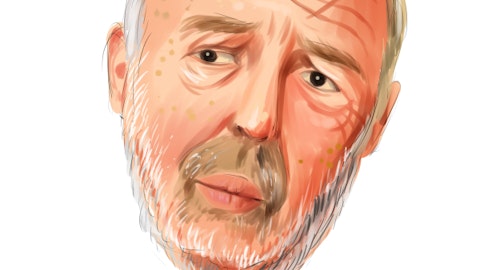So really, and I also mentioned the sort of walking slow to run fast. It’s pretty clear to us at this stage, the demand is there. The key now is to actually make sure that we build that grower trust and we build the relationships with growers in such a way, and that as we bring in these advanced technologies, they’re essentially primed, if you like, pre-primed to really ramp up fairly quickly. And I would say in that regard, we’ve been — we’ve been — we added to our seed operations team late last year, and we’re very excited about what we’re hearing from growers in general, keeping in mind that, previous attempts to launch Camelina really didn’t have any advanced technology in them. But in fact, there was tens of thousands of acres in Alberta, Saskatchewan and Montana planted.
The grower’s challenge was of course, the herbicide and wheat control was a problem, but B, the market, the market for these crops in the biodiesel space dried up. So I think what we are finding is people like the crop, they like it a lot. They’re very anxious to be able to grow it. And then when we talk about basically over the top or, or essentially broad beef and grass wheat control, that level of excitement only increases. And then when you talk about the stack where they would have to be — there’d be — they would — essentially, the way you think about it is most of these farms in that region, they’ll grow a lot of pulses and feet and what have you, and that basically means there’s a lot of class two herbicides. So probably over half the farm is just not available because it has these residues on it at the end of a growing season.
So we do believe that the ramp up will come with the herbicide technology, no question.
Anthony Vendetti: Okay. And then I know it might be hard to gauge, but are there milestones that you need to reach for the MOU to go to a definitive agreement?
Oliver Peoples: So all I can tell you is that we are — we continue through an extensive due diligence process with Mitsubishi that’s been ongoing site visits to obviously our facilities and operations in Canada, also to some of our field trials planned, I guess as well for some of the other field trials that are ongoing this year. There’s site planned there and obviously there’s a strong desire also to see the winter Camelina that was planted at scale up in that region as well in the Canadian Canada region, obviously, because seeing is believing, right? And so obviously most of that is still under snow and it’ll probably be under snow for a while. So there’s nothing much to see except why but yeah, no, it’s more mainly doing due diligence, working through the terms, working through the details of these optic agreements and in addition, as I said, in addition to Mitsubishi we’ve been I would say thrilled with the amount of inbound inquiries we’re getting from other oil players.
It’s clear that there’s a unmet need in this space. If you look at the other players whether it’s cover cress or new seed or even the new vision bioenergy and our sustainable oils, they’re already kind of partnered up with major oil players, and so they’re sort of somewhat locked out of the process. So we are finding that we are we are — we’re having a very interesting set of business development conversations. Obviously the goal for us is to bring those to a close in a positive way in the relative linear term.
Anthony Vendetti: Okay, great. That’s very helpful. Thanks. I’ll hop back in the queue.
Lynne Brum: Thanks Anthony. Doug, do we have another analyst?
Operator: Our next question comes from the line of Sameer Joshi with H.C. Wainwright. Please proceed with your question.



